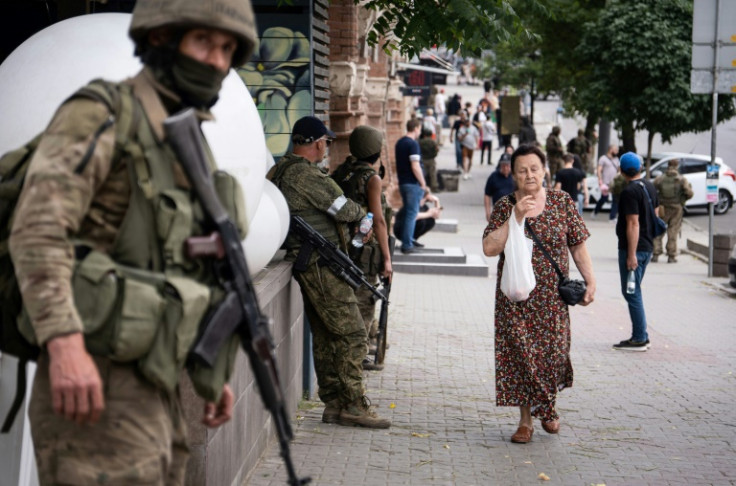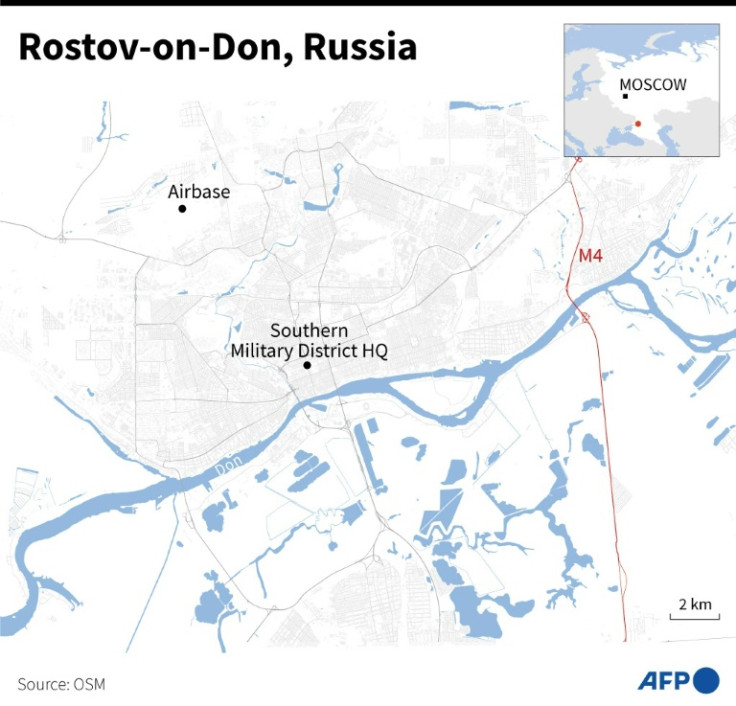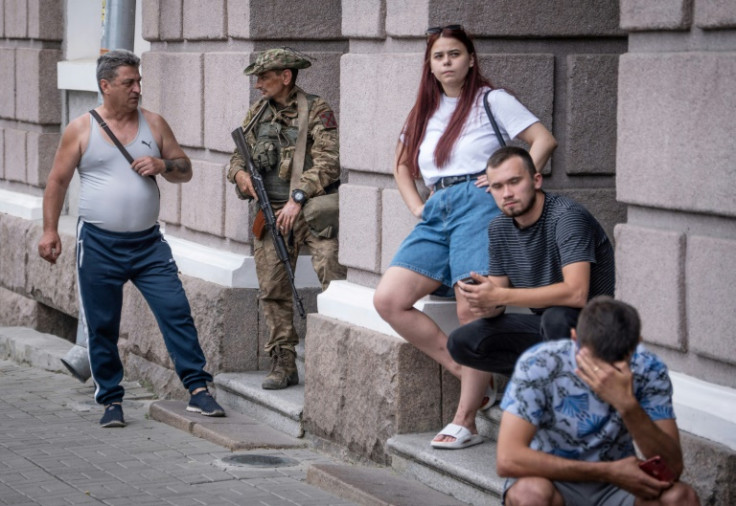Relief And Sympathy As Rebels Stand Down In Russian City

Residents of a Russian city at the heart of a brief rebellion against army top brass expressed relief on Sunday but also voiced some sympathy for the mutiny and questions about what exactly happened.
Fighters from the Wagner mercenary group with silver armbands and carrying assault rifles had deployed a day earlier across Rostov-on-Don in tanks and armoured cars.
They also said they had taken control of the military headquarters in the southern city -- a major hub for Russia's Ukraine campaign -- and were marching on Moscow.
The Wagner group stood down later on Saturday after striking a deal with the Kremlin that will allow its leader Yevgeny Prigozhin go into exile in Kremlin-allied Belarus and not face mutiny charges.
Rina Abramian, a 28-year-old doctor, said she felt "relieved" about the outcome.
"When something routine in your city changes and you don't really understand what's going on, you feel very anxious and unsafe. So I felt relieved."
Tank track markings could still be seen on the road in the city centre on Sunday morning and areas where armoured vehicles had been parked were cordoned off, while buses were back on their normal routes.
A large blue banner seen hanging in a city park read: "Brothers, let's not allow bloodshed, there are no enemies here, we can only win together".
Residents who had heeded a request by local government to remain in their homes on Saturday were enjoying the sunshine.
Tatyana, a 76-year-old teacher sitting on a bench, said she was "very upset" when she first heard about the rebellion.
"I did not go out because they said that it was better not to go out. I followed the news all day and was really worried so I'm glad everything turned out well."
Dmitry Filyanin, a 35-year-old psychologist, said he felt scared when it happened and relief when he heard about the deal struck between Wagner and the Kremlin after mediation by Belarusian President Alexander Lukashenko.
But he added: "There is still a lack of understanding. Why was this done? Who instigated all this?
"There is still confusion but it has somehow become calmer," he said.
Boris Kudryavtsev, a pensioner, said he had "respect" for the Wagner fighters.
"I understand them a bit," he said, adding however that they should have sorted out their disagreements with Russia's military leaders differently.
"They came with weapons. It could have been a real mess," said the former driver, adding that President Vladimir Putin should "pay attention" to Russia's "elderly" military leadership.
Over the course of the Ukraine campaign, Prigozhin has complained about Russia's military leaders in increasingly strident terms, accusing them of inaction, inefficiency and failing to provide his forces with sufficient ammunition.
As news came through that the group was ending its mutiny, dozens of Rostov-on-Don residents gathered outside the military headquarters in support.
"Wagner! Wagner!" they chanted on Saturday.
"They are standing up for what's right and that's the right thing to do.
"You can't just leave them with nothing... Those guys have done a lot for our country."


© Copyright AFP {{Year}}. All rights reserved.





















